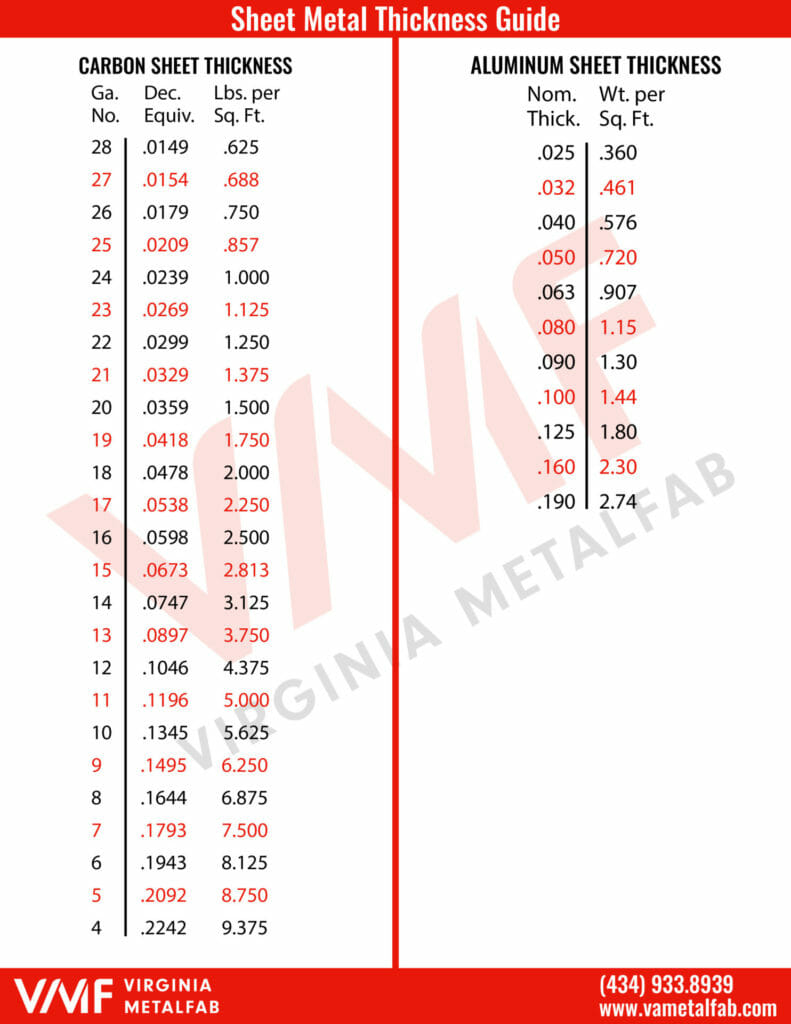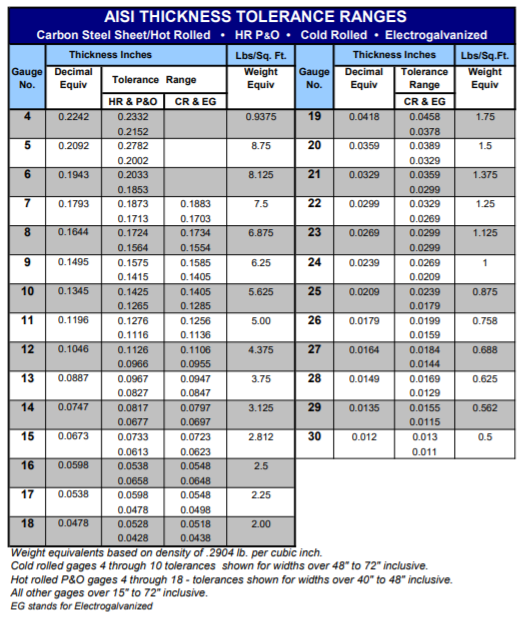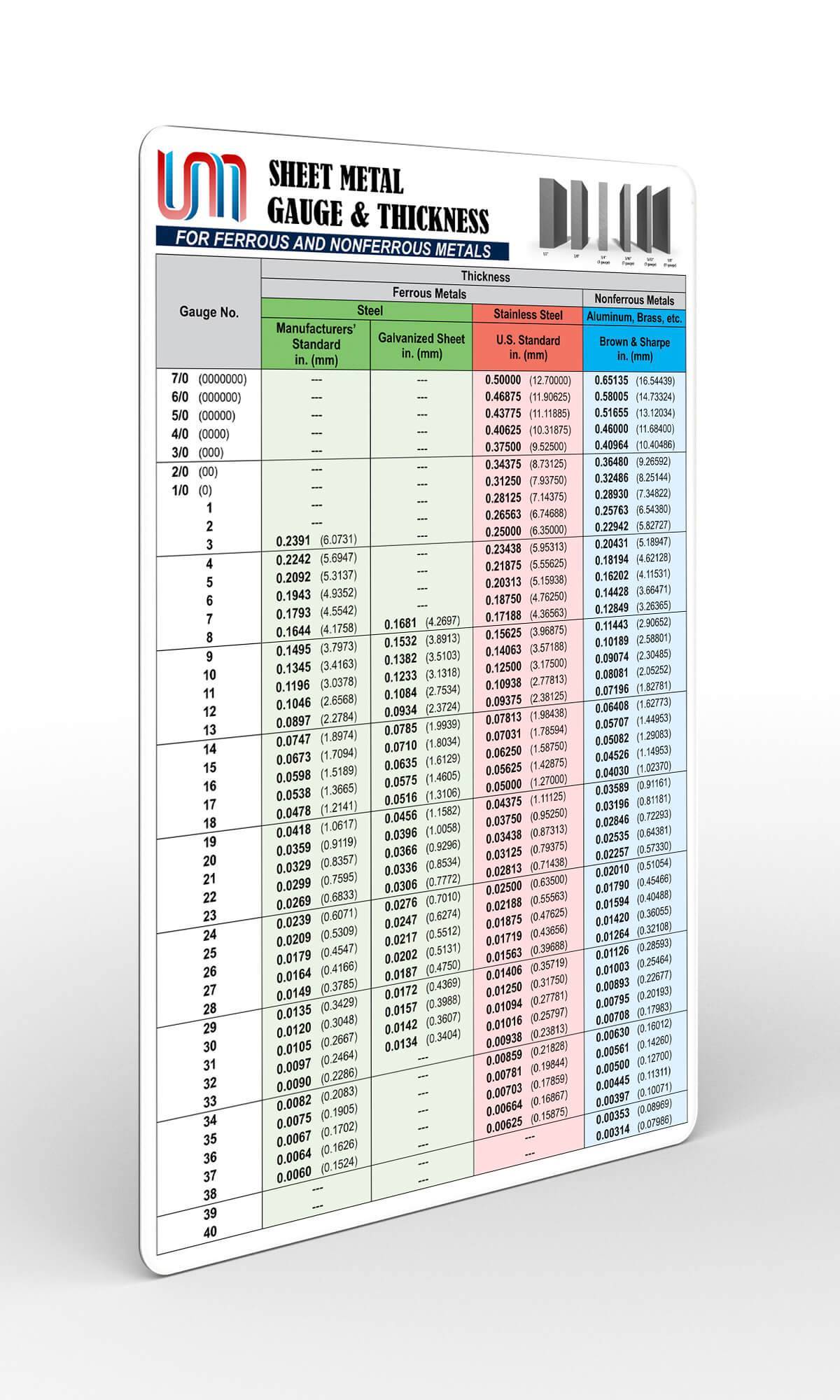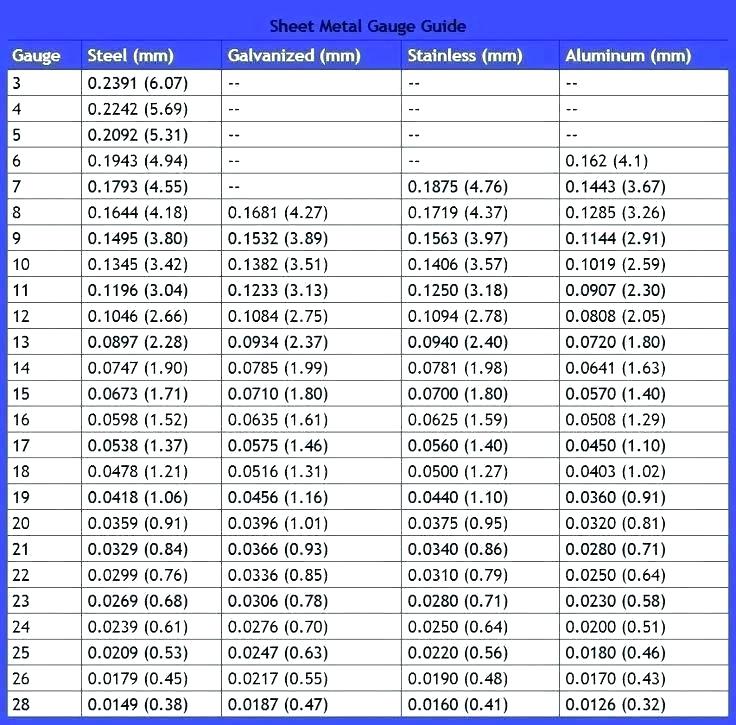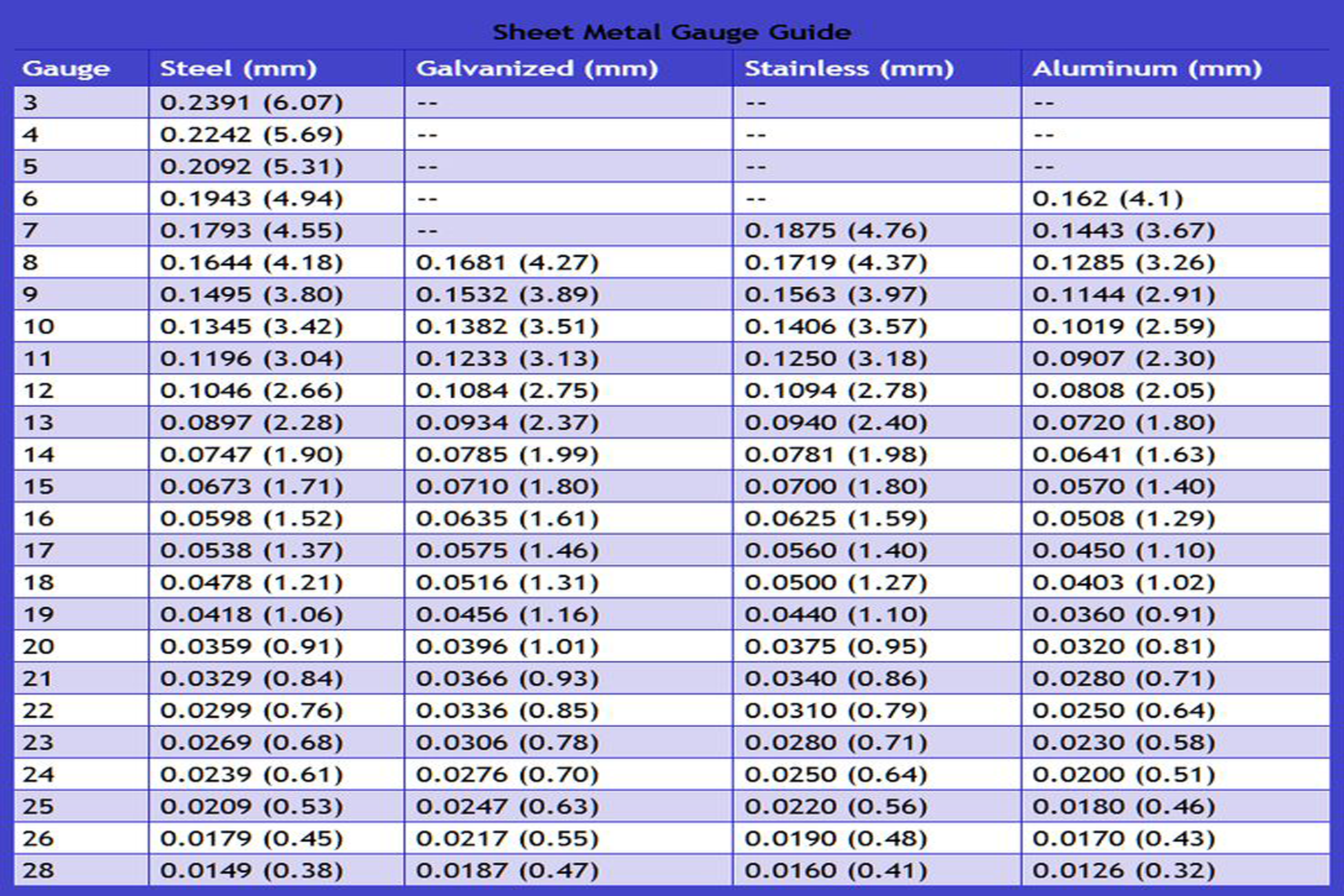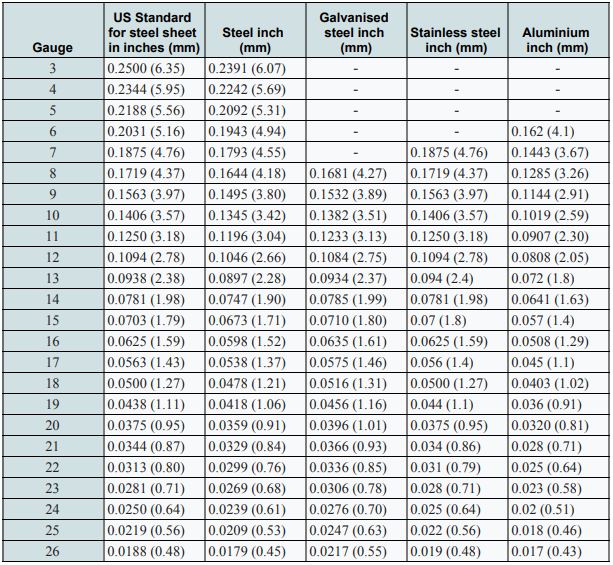Common Sheet Metal Thicknesses - 38 rows the chart below can be used to determine the equivalent sheet thickness, in inches or millimeters, for a gauge number from. Typical thickness ranges are 0.5 to 6 mm for steel, 0.2 to 5 mm for aluminum, 0.4 to 6 mm for stainless steel, and 0.2 to 3 mm for. Metals gauges are standard numbers developed by measuring the thickness of sheet metal in relation to its weight per square.
38 rows the chart below can be used to determine the equivalent sheet thickness, in inches or millimeters, for a gauge number from. Typical thickness ranges are 0.5 to 6 mm for steel, 0.2 to 5 mm for aluminum, 0.4 to 6 mm for stainless steel, and 0.2 to 3 mm for. Metals gauges are standard numbers developed by measuring the thickness of sheet metal in relation to its weight per square.
38 rows the chart below can be used to determine the equivalent sheet thickness, in inches or millimeters, for a gauge number from. Typical thickness ranges are 0.5 to 6 mm for steel, 0.2 to 5 mm for aluminum, 0.4 to 6 mm for stainless steel, and 0.2 to 3 mm for. Metals gauges are standard numbers developed by measuring the thickness of sheet metal in relation to its weight per square.
Sheet Metal Thickness CHART Sheet Metal Procedural Knowledge
38 rows the chart below can be used to determine the equivalent sheet thickness, in inches or millimeters, for a gauge number from. Metals gauges are standard numbers developed by measuring the thickness of sheet metal in relation to its weight per square. Typical thickness ranges are 0.5 to 6 mm for steel, 0.2 to 5 mm for aluminum, 0.4.
Resources Virginia MetalFab
Typical thickness ranges are 0.5 to 6 mm for steel, 0.2 to 5 mm for aluminum, 0.4 to 6 mm for stainless steel, and 0.2 to 3 mm for. Metals gauges are standard numbers developed by measuring the thickness of sheet metal in relation to its weight per square. 38 rows the chart below can be used to determine the.
Carbon Steel Metal Products Trusted Steel Metal Supplier
Metals gauges are standard numbers developed by measuring the thickness of sheet metal in relation to its weight per square. 38 rows the chart below can be used to determine the equivalent sheet thickness, in inches or millimeters, for a gauge number from. Typical thickness ranges are 0.5 to 6 mm for steel, 0.2 to 5 mm for aluminum, 0.4.
Metric Sheet Metal Thickness A Comprehensive Guide & Chart Hungthai
Typical thickness ranges are 0.5 to 6 mm for steel, 0.2 to 5 mm for aluminum, 0.4 to 6 mm for stainless steel, and 0.2 to 3 mm for. 38 rows the chart below can be used to determine the equivalent sheet thickness, in inches or millimeters, for a gauge number from. Metals gauges are standard numbers developed by measuring.
Sheet Metal Thickness Chart Sst
Typical thickness ranges are 0.5 to 6 mm for steel, 0.2 to 5 mm for aluminum, 0.4 to 6 mm for stainless steel, and 0.2 to 3 mm for. Metals gauges are standard numbers developed by measuring the thickness of sheet metal in relation to its weight per square. 38 rows the chart below can be used to determine the.
Standard Sheet Metal Gauge Thickness Chart
Metals gauges are standard numbers developed by measuring the thickness of sheet metal in relation to its weight per square. 38 rows the chart below can be used to determine the equivalent sheet thickness, in inches or millimeters, for a gauge number from. Typical thickness ranges are 0.5 to 6 mm for steel, 0.2 to 5 mm for aluminum, 0.4.
Metal Sheet Thickness Gauge
Typical thickness ranges are 0.5 to 6 mm for steel, 0.2 to 5 mm for aluminum, 0.4 to 6 mm for stainless steel, and 0.2 to 3 mm for. 38 rows the chart below can be used to determine the equivalent sheet thickness, in inches or millimeters, for a gauge number from. Metals gauges are standard numbers developed by measuring.
What Is Sheet Metal Seattle, Washington Metal Werks
38 rows the chart below can be used to determine the equivalent sheet thickness, in inches or millimeters, for a gauge number from. Metals gauges are standard numbers developed by measuring the thickness of sheet metal in relation to its weight per square. Typical thickness ranges are 0.5 to 6 mm for steel, 0.2 to 5 mm for aluminum, 0.4.
Printable Sheet Metal Gauge Chart
Typical thickness ranges are 0.5 to 6 mm for steel, 0.2 to 5 mm for aluminum, 0.4 to 6 mm for stainless steel, and 0.2 to 3 mm for. Metals gauges are standard numbers developed by measuring the thickness of sheet metal in relation to its weight per square. 38 rows the chart below can be used to determine the.
Steel sheet metal gauge chart MS/ carbon steel thicknesses
Metals gauges are standard numbers developed by measuring the thickness of sheet metal in relation to its weight per square. 38 rows the chart below can be used to determine the equivalent sheet thickness, in inches or millimeters, for a gauge number from. Typical thickness ranges are 0.5 to 6 mm for steel, 0.2 to 5 mm for aluminum, 0.4.
38 Rows The Chart Below Can Be Used To Determine The Equivalent Sheet Thickness, In Inches Or Millimeters, For A Gauge Number From.
Typical thickness ranges are 0.5 to 6 mm for steel, 0.2 to 5 mm for aluminum, 0.4 to 6 mm for stainless steel, and 0.2 to 3 mm for. Metals gauges are standard numbers developed by measuring the thickness of sheet metal in relation to its weight per square.

